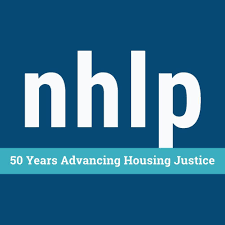NHLP is a legal advocacy center focused on increasing, preserving, and improving affordable housing; expanding and enforcing the rights of low-income tenants and homeowners; and increasing housing opportunities for protected classes. Our organization provides technical assistance and policy support on a range of housing issues to legal services attorneys and other advocates nationwide. In addition, NHLP hosts the national Housing Justice Network, a vast field network of over 1,000 community-level housing advocates and tenant leaders, many of whom practice in jurisdictions that have converted properties to RAD, are in the processing of converting properties to RAD, or wish to convert properties to RAD.
The National Housing Law Project (NHLP) sent a letter to HUD Secretary Ben Carson describing numerous violations of rights and protections tenants have encountered when their developments are scheduled to convert or ultimately convert under RAD. In the letter below, NHLP are clear that these violations of rights “are not limited to a few select owners or housing authorities, but are reflective of problems facing RAD conversions across the country and result from limited guidance and oversight in the program.”
Their findings include:
- Lack of transparency before, during and after RAD conversions
- Resident education requirements are not robust enough and PHAs do not always meet minimum requirements either
- Despite clear requirements, PHAs frequently have inadequate relocation policies.
- PHAs and owners frequently interfere with tenant organizing activities
- Although prohibited, residents are routinely re-screened at the time of conversion for income, credit history, criminal history and more. For example, residents have been expressly told they are “over-income”.
- Although prohibited, numerous residents have been denied their right to grievance procedures.
- Explicit violations of fair housing and civil rights laws have been identified such as familial status discrimination, failure to provide reasonable accommodations to residents with disabilities, and failure to provide translation services to individuals with limited English proficiency.
- In transfers of assistance, residents are told they must move a significant distance away from the public housing property. Such transfers will have a devastating impact on residents because they will be moved far from their friends, families, workplaces, churches, schools and medical providers.
Despite these issues, their main call to action for HUD was that they do a better job of assessing residents’ experience of RAD conversion, and tighten and enforce protections and guarantees for tenants.
